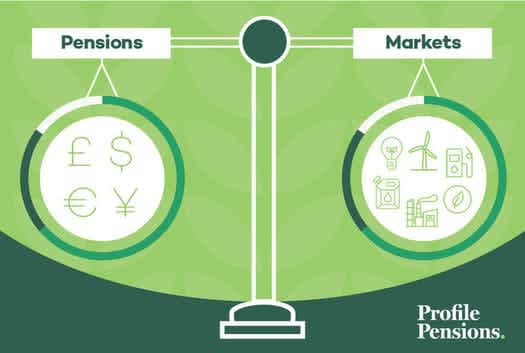The Compound Interest Advantage for Pensions
Compound interest is the cornerstone of building wealth. It's a concept that Albert Einstein famously referred to as the "eighth wonder of the world." The main benefit of compound interest is reinvesting the interest earned on both the initial sum and the new interest itself. This creates a snowball effect, where your money could grow exponentially over time. But how does this relate to pensions?
Does Your Pension Benefit from This?
Absolutely! As your pension is usually the investment you’ll have for the longest, it can really benefit from compound interest. When you regularly put money into your pension pot, it gets invested into the pension funds we selected for you, based on your individual needs and goals. Over time, these investments generate returns and could turn even your modest contributions into a retirement fund that's seriously impressive.
Why Compound Interest is So Important
Imagine you start saving into a pension in your 20s when you get your first job. Even if you're not contributing large amounts of money, the power of compound interest means your money has more time to grow before your retire. As your investment gains generate returns, those returns themselves start earning returns. Over several decades, this compounding effect can make a big difference. That’s why the best time to start a pension is in your 20s, but the next best time is today.
Tax Relief and Pension Contributions
Now, let's talk about tax relief. Tax relief is a golden opportunity to boost your pension contributions effectively. In many countries, including the UK, pension contributions receive tax relief. This means that when you contribute to a private pension you will automatically get a tax relief top up from the government, within your personal annual allowance.
Pension Tax Relief: How it works
In the UK when you put money into your pension, the government contributes as well. This can be particularly impactful for higher-rate taxpayers. It's a smart way to make your money work harder for your future.
Let's look at a quick example: you're a basic rate taxpayer in the UK and contribute £100 to your pension. Thanks to tax relief, your pension provider adds £25 to your contribution automatically, making it £125. This is because the government adds a 25% top up to your contribution.
For higher rate taxpayers, it gets even better. If you contribute the same £100 - your pension provider adds the same £25 automatically, but you can claim back an additional £25 through your self assessment tax return.
Understanding pension tax relief
If you want to learn more about pension tax relief in the UK, we have a helpful guide going into more detail here - Pension Tax Relief. It gives you information on how to get the most tax benefits from your contributions.
Why Regular Consistent Pension Contributions Matter
As we mentioned earlier, compound interest really thrives with time. The earlier you start contributing to your pension, the longer your money could have to compound and grow. But whenever you start contributing to a pension, it also matters that you are consistent. By making regular monthly payments and increasing what you contribute as your salary grows during your career, the more likely you are to have a pension pot you’re happy with.
To help you visualise the difference small, regular payments and compound interest can have over time, check out our Pension Calculator. This tool allows you to see how different contribution amounts and the time your pension is invested can influence the final value of your pension fund. It even includes projected inflation rates and how that affects your pension value.
What have we learnt?
Consistency in your pension contributions, understanding tax relief, and the magic of compound interest could transform your pension. If you're ready to kickstart your pension and plan for your future, head over to Start a New Pension to learn more and get started. Careful planning of your pension today could lead to a very bright financial future.
Capital at risk. Past performance is not a guide to future performance. This website does not constitute personal advice. If you are in doubt as to the suitability of an investment, please contact one of Profile Pensions’ advisers. Prevailing tax rates and reliefs are dependent on your individual circumstances and are subject to change.



